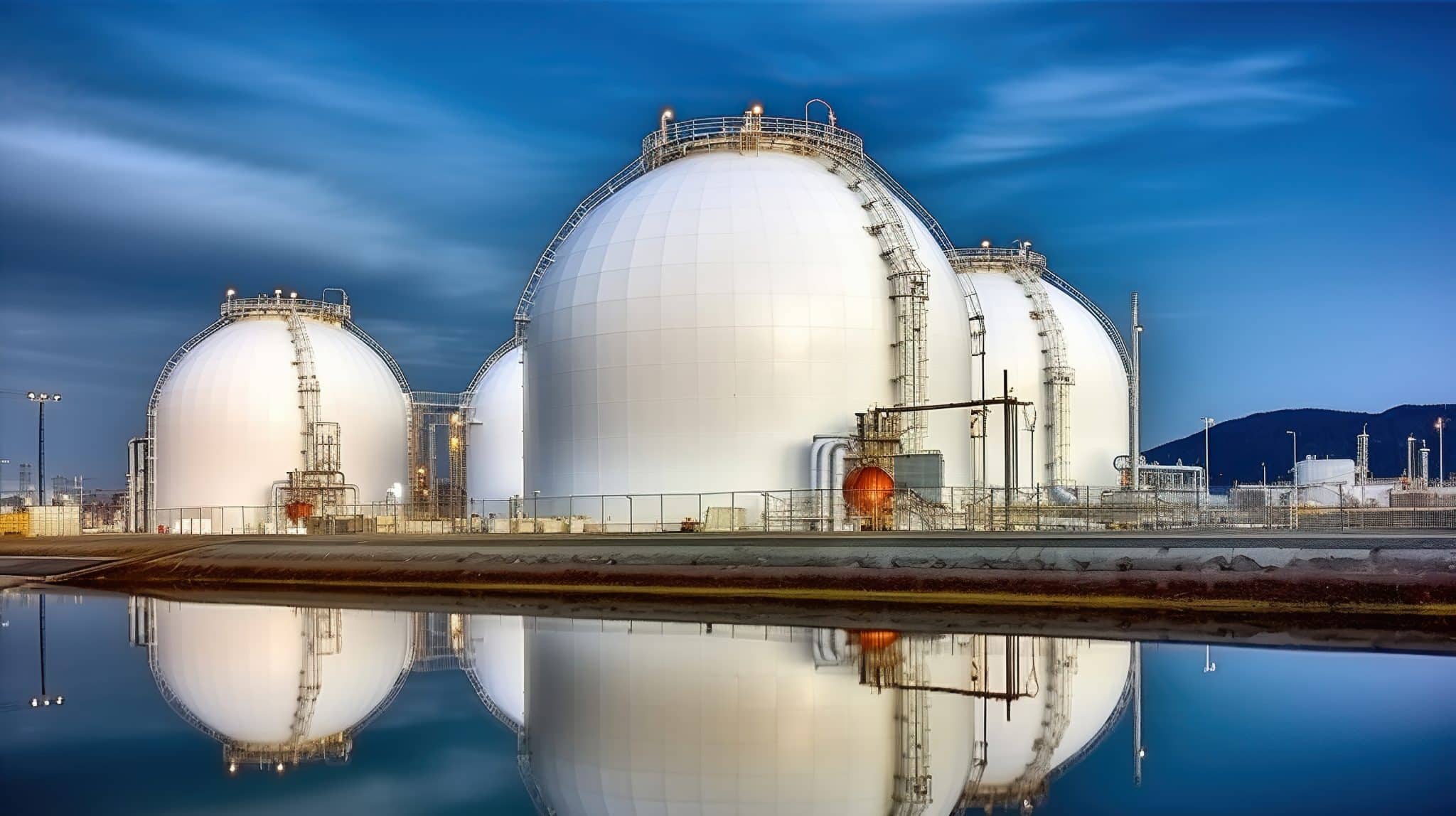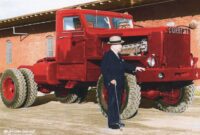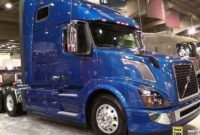LNG Trucks For Sale: Navigating the Future of Commercial Transportation pickup.truckstrend.com
The commercial trucking industry is undergoing a transformative shift, driven by a growing imperative for sustainability, economic efficiency, and reduced environmental impact. At the forefront of this evolution are Liquefied Natural Gas (LNG) trucks. For fleet managers, owner-operators, and businesses seeking to modernize their logistics while minimizing their carbon footprint, understanding the landscape of LNG trucks for sale is no longer an option but a strategic necessity. This comprehensive guide will delve into everything you need to know about acquiring these innovative vehicles, from their inherent advantages to the practicalities of purchase and ownership.
What are LNG Trucks and Why Are They Important?
LNG Trucks For Sale: Navigating the Future of Commercial Transportation
LNG trucks are commercial vehicles powered by Liquefied Natural Gas, a cryogenic fuel stored at extremely low temperatures in insulated tanks. Unlike Compressed Natural Gas (CNG), which is stored at high pressure, LNG offers a higher energy density, allowing for greater range – a crucial factor for heavy-duty, long-haul applications.
Their growing importance stems from several compelling factors:
- Environmental Stewardship: LNG combustion produces significantly lower emissions of nitrogen oxides (NOx), particulate matter (PM), and greenhouse gases (GHG) compared to conventional diesel. This aligns with increasingly stringent environmental regulations and corporate sustainability goals.
- Fuel Cost Stability & Savings: While natural gas prices can fluctuate, they have historically been more stable and often lower than diesel, offering potential long-term operational cost savings.
- Quieter Operation: LNG engines tend to run quieter than their diesel counterparts, reducing noise pollution in urban and residential areas.
- Enhanced Public Image: Operating an LNG fleet demonstrates a commitment to innovation and environmental responsibility, enhancing a company’s brand reputation.

For those looking to future-proof their operations, LNG trucks represent a vital pathway towards a cleaner, more efficient, and economically viable future in commercial transportation.
The Distinct Advantages of Investing in LNG Trucks
Beyond their fundamental definition, the specific benefits of LNG trucks make them an attractive proposition for various trucking operations:
- Reduced Emissions and Environmental Impact: This is perhaps the most significant advantage. LNG produces virtually no particulate matter, significantly less NOx, and about 20-25% less CO2 than diesel over a well-to-wheel lifecycle. This helps companies meet regulatory compliance and achieve their environmental, social, and governance (ESG) targets.
- Potential Fuel Cost Savings: While initial vehicle costs might be higher, the lower per-gallon equivalent price of natural gas compared to diesel can lead to substantial savings over the truck’s lifespan, especially for high-mileage operations.
- National Fuel Security: Utilizing domestically produced natural gas reduces reliance on imported petroleum, contributing to national energy independence and stability.
- Quieter Operation: The inherent combustion characteristics of natural gas lead to quieter engine operation, a benefit for drivers, communities, and operations in noise-sensitive areas.
- Performance Parity: Modern LNG engines deliver comparable horsepower and torque to their diesel equivalents, ensuring no compromise on performance for heavy-duty applications.
- Government Incentives: Many governments and local authorities offer tax credits, grants, or subsidies for purchasing alternative fuel vehicles, further reducing the total cost of ownership.


Types and Categories of LNG Trucks Available
The market for LNG trucks is evolving, offering a range of options to suit diverse operational needs:
- New LNG Trucks: These offer the latest technology, full manufacturer warranties, and often come with service and maintenance packages. They represent the highest initial investment but provide the longest service life and access to cutting-edge features. Major manufacturers like Volvo, Freightliner (Cascadia NGE), Kenworth (T680/T880), Peterbilt (579/520), Scania, and Iveco offer various LNG models.
- Used LNG Trucks: For budget-conscious buyers, the used market can offer significant savings. These trucks might have accumulated mileage but can still provide many years of reliable service if properly maintained. It’s crucial to thoroughly inspect used vehicles and review their maintenance history.
- By Application:
- Long-Haul/Sleeper Cabs: Designed for extended journeys, these trucks typically feature larger LNG tanks for maximum range.
- Regional Haul/Day Cabs: Suitable for shorter, more frequent routes where less range is required, often found in hub-and-spoke operations.
- Vocational Trucks: This category includes refuse trucks, concrete mixers, and port drayage trucks that operate within a defined area with access to fueling infrastructure.
Key Considerations When Purchasing an LNG Truck
Acquiring an LNG truck involves more than just selecting a model. Several critical factors must be thoroughly evaluated to ensure a successful transition:
- Fueling Infrastructure: This is arguably the most important consideration. Do your planned routes have sufficient LNG fueling stations? Natural gas fueling infrastructure is growing but is still less ubiquitous than diesel. Mapping out your routes and identifying available stations is paramount. Consider partnerships with existing fueling providers or, for large fleets, the feasibility of building a private fueling station.
- Range and Payload: While LNG offers better energy density than CNG, it still requires larger fuel tanks for comparable range to diesel. This can sometimes impact payload capacity. Assess if the truck’s range meets your operational requirements without excessive refueling stops.
- Total Cost of Ownership (TCO): Look beyond the purchase price. Factor in fuel costs, maintenance, insurance, potential government incentives, and estimated resale value. While initial costs can be higher, TCO over the truck’s lifespan often proves competitive or superior to diesel.
- Maintenance and Servicing: LNG trucks have specialized components, including cryogenic fuel tanks and specific fueling systems. Ensure you have access to certified technicians and parts. Many manufacturers offer training programs, or you may need to invest in specialized tools and training for your in-house maintenance staff.
- Regulations and Safety: Be aware of local, state, and federal regulations pertaining to natural gas vehicle operation, storage, and safety. LNG is a safe fuel when handled correctly, but proper training and adherence to safety protocols are essential.
- Driver Training: Drivers will need to be trained on the specific operational and safety procedures for LNG vehicles, including fueling protocols and emergency procedures.
- Resale Value: The used market for LNG trucks is still maturing. While demand is growing, assessing future resale value can be more challenging than for traditional diesel trucks.
Where to Find LNG Trucks For Sale
The market for LNG trucks is expanding, offering several avenues for potential buyers:
- Authorized Dealerships: The most reliable source for new LNG trucks, offering manufacturer warranties, financing options, and access to certified service centers. Many dealerships also offer certified pre-owned LNG trucks.
- Online Marketplaces: Websites like TruckPaper.com, CommercialTruckTrader.com, and Ritchie Bros. Auctioneers (for auctions) list a vast inventory of new and used commercial vehicles, including LNG models. Filter searches specifically for "LNG" or "Natural Gas" trucks.
- Manufacturer Websites: Directly visit the websites of major truck manufacturers (Volvo, Freightliner, Kenworth, Peterbilt, Scania, etc.) to view their LNG offerings and locate authorized dealers.
- Fleet Sales and Brokers: Some large fleets that are upgrading their vehicles or transitioning their fuel types may sell off their existing LNG trucks directly or through brokers. These can be good sources for well-maintained used vehicles.
- Auctions: Commercial vehicle auctions, both online and physical, can be excellent places to find used LNG trucks at competitive prices. However, "buyer beware" applies here; thorough inspection is even more critical.
Tips for a Smart LNG Truck Purchase
Making an informed decision when buying an LNG truck requires diligence:
- Define Your Needs Clearly: Before you start looking, understand your operational requirements: desired range, payload capacity, typical routes, and budget.
- Research Fueling Infrastructure: This cannot be stressed enough. Use online tools and apps to map out LNG stations along your primary routes. If coverage is sparse, the truck might not be practical.
- Thorough Inspection (Especially for Used): For used trucks, conduct a comprehensive pre-purchase inspection by a qualified mechanic familiar with natural gas vehicles. Pay close attention to the engine, transmission, and critically, the LNG fuel system (tanks, lines, regulators). Check for leaks, damage, or signs of improper maintenance.
- Review Maintenance Records: Ask for detailed maintenance and service history, especially for the natural gas components. This provides insight into how well the truck was cared for.
- VIN Check: Run a comprehensive VIN report to check for accident history, flood damage, recall notices, and odometer discrepancies.
- Test Drive: Always test drive the truck under conditions similar to your typical operation. Pay attention to performance, braking, and any unusual noises.
- Understand Warranties and Service Agreements: For new trucks, understand the warranty coverage for both the truck and its specific LNG components. For used, inquire about any remaining warranty or consider purchasing an extended service plan.
- Explore Financing Options: Natural gas vehicle purchases might qualify for specialized financing or leasing programs. Research these to optimize your investment.
- Negotiate: Don’t hesitate to negotiate the price, especially for used trucks. Knowledge of market values and the truck’s condition will be your best leverage.
- Factor in Training: Budget time and resources for driver and maintenance personnel training on LNG vehicle specifics.
Potential Challenges and Solutions
While LNG trucks offer significant benefits, potential challenges exist that buyers should be prepared for:
- Higher Initial Purchase Price: LNG trucks often have a higher upfront cost than comparable diesel models due to specialized components.
- Solution: Focus on the Total Cost of Ownership (TCO) over the truck’s lifespan, leveraging potential fuel savings and government incentives to offset the initial investment.
- Limited Fueling Infrastructure: The natural gas fueling network is growing but less widespread than diesel.
- Solution: Strategic route planning, utilizing online station locators, and considering the development of private or shared fueling facilities for larger fleets.
- Specialized Maintenance Requirements: LNG systems require trained technicians and specific tools.
- Solution: Partner with dealerships offering certified LNG service, invest in training for your in-house mechanics, or opt for comprehensive service contracts.
- Driver Adoption and Training: Drivers unfamiliar with LNG trucks may require additional training.
- Solution: Implement mandatory training programs covering fueling procedures, vehicle operation, and safety protocols for natural gas vehicles.
- Range Anxiety: While better than CNG, LNG range might still be a concern for ultra-long-haul routes without sufficient fueling points.
- Solution: Carefully match truck range capabilities with specific route requirements and ensure a robust fueling plan is in place.
LNG Truck Price Table (Representative Ranges)
Please note that prices for LNG trucks can vary significantly based on manufacturer, model, year, mileage, condition (new vs. used), specifications (e.g., engine size, sleeper vs. day cab), and market demand. The table below provides representative ranges in USD and should be used as a general guide. Always obtain specific quotes for accurate pricing.
| Truck Type/Category | Condition | Example Model (Generic) | Price Range (USD) | Key Features / Notes |
|---|---|---|---|---|
| Heavy-Duty Sleeper | New | Long-Haul Tractor | $180,000 – $250,000+ | Maximum range, large LNG tanks, premium features, full manufacturer warranty. |
| Heavy-Duty Sleeper | Used | Long-Haul Tractor | $60,000 – $150,000 | Varies by year, mileage, condition. Crucial to inspect LNG system history. |
| Heavy-Duty Day Cab | New | Regional Haul Tractor | $160,000 – $220,000 | Shorter range, ideal for hub-and-spoke operations, good for regional freight. |
| Heavy-Duty Day Cab | Used | Regional Haul Tractor | $40,000 – $120,000 | More common in used market than sleepers. Check for vocational past use. |
| Vocational (e.g., Refuse) | New | Refuse Packer | $250,000 – $400,000+ | Highly specialized, often custom-built. Price includes body. |
| Vocational (e.g., Refuse) | Used | Refuse Packer | $80,000 – $200,000 | High usage, critical to check engine and hydraulic system condition. |
| Medium-Duty (Limited LNG) | New | Box Truck / Delivery | $100,000 – $180,000 | Less common in LNG; more often CNG. Shorter range, lighter applications. |
| Medium-Duty (Limited LNG) | Used | Box Truck / Delivery | $30,000 – $80,000 | Very rare in LNG, usually aftermarket conversions. |
Frequently Asked Questions (FAQ) About LNG Trucks
Q1: Is LNG safe to use in trucks?
A1: Yes, LNG is safe when handled and stored correctly. LNG vehicles undergo rigorous safety testing, and fuel tanks are designed with multiple safety features. Proper training for drivers and maintenance personnel is crucial for safe operation.
Q2: What is the typical range of an LNG truck compared to a diesel truck?
A2: Modern LNG trucks can achieve ranges comparable to many diesel trucks, often between 500-800 miles (800-1300 km) on a single fill, depending on tank size and load. While energy density is lower than diesel, the larger volume of LNG tanks helps compensate for this.
Q3: How do LNG truck emissions compare to diesel trucks?
A3: LNG trucks produce significantly lower emissions. They virtually eliminate particulate matter (PM), reduce nitrogen oxides (NOx) by up to 90%, and lower greenhouse gas (GHG) emissions (CO2) by 20-25% compared to diesel, especially when using renewable natural gas (RNG).
Q4: Are there government incentives for buying LNG trucks?
A4: Yes, many governments (federal, state, and local) offer incentives such as tax credits, grants, rebates, or reduced road tolls for alternative fuel vehicles, including LNG trucks. These vary by region and can significantly reduce the total cost of ownership. It’s advisable to check current programs in your specific area.
Q5: What’s the main difference between LNG and CNG trucks?
A5: The primary difference lies in the fuel’s state and storage. CNG (Compressed Natural Gas) is stored at high pressure (typically 3,600 psi), while LNG (Liquefied Natural Gas) is cooled to -260°F (-162°C) and stored as a cryogenic liquid at low pressure. LNG has a higher energy density, allowing for greater range, making it more suitable for heavy-duty, long-haul applications where CNG’s range might be limiting.
Q6: Is maintenance more expensive for LNG trucks than diesel trucks?
A6: The cost of maintenance can be comparable or, in some cases, slightly higher due to specialized components and the need for trained technicians. However, natural gas burns cleaner than diesel, which can lead to extended engine oil life and potentially longer intervals between certain maintenance tasks for the engine itself. The overall TCO often balances out.
Q7: Can a diesel truck be converted to run on LNG?
A7: While conversions are technically possible, they are complex and often not recommended for heavy-duty commercial vehicles due to performance, warranty, and safety concerns. It’s generally more cost-effective and reliable to purchase purpose-built LNG trucks from reputable manufacturers.
Conclusion: Driving Towards a Greener, More Efficient Future
The market for LNG trucks for sale represents a pivotal moment in the evolution of commercial transportation. By offering a compelling blend of environmental benefits, potential fuel cost savings, and robust performance, these vehicles are no longer a niche alternative but a mainstream solution for forward-thinking businesses.
Navigating this market requires careful consideration of fueling infrastructure, maintenance capabilities, and the overall total cost of ownership. However, with diligent research, strategic planning, and a clear understanding of your operational needs, investing in an LNG truck can position your fleet for long-term success, contributing to both your bottom line and a healthier planet. As the world moves towards more sustainable logistics, LNG trucks stand ready to lead the charge.



